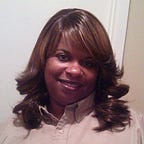Who is judging the judge?
By Andrea Tumblin
I find myself at odds with the way stories are judged. Often a writing contest dangles itself in front of me and my fingers begin to tingle as ideas take flight swirling around in my mind. I feel a little drop of moisture brimming in the corners of my eyes because I so desperately crave the opportunity to introduce others to my dreams, journeys, and visualizations that scream to be released from their confines. They seek an audience with the world begging to be heard and seen.
With all the anticipation and emotion swelling in me creating waves fully charged by the kinetic forces raging in my mental sea, I open a new Word document on which I will give birth to an idea or a concept shaping the lives of the characters who reflect the trials, tribulations, and joys of my life and those around me. A shocking rendition of what it takes to grow, live, and love in the good Ole South may seem barbaric and terrifying to some or possibly lavishly resplendent to others.
There are those who lack the equanimity required to feel what others feel or understand what and why others do what they do. Because those people some judges deem to be outsiders live lives that are intrinsically bound to those people, some might take offense and judge them and their creative writing pursuits as unfit or unworthy to live in the halls of the fictitious literature whose sole purpose is to place a giant mirror on society and reflect what it witnesses. These judges allow their subjectively biased perquisites to apply a tax on those who cannot reflect what has not been achieved based on their personal experiences.
A writer’s inability to mimic the currently popularized collective body of literary works in a form, structure, and style established by literary benchmarks from the past provides the judge with ammunition to automatically call into question anyone who claims to be an author. If that person’s work doesn’t meet the judge’s standards, their prerogative to express what is authentic and organic to them is purged and never allowed to see the light of day in the contest and publishing world.
Failing to represent the insipidly repetitious collective is deemed unacceptable and therefore writers who breathe a new life force of something different and foreign into the craft find themselves at the mercy of a judge’s preconceived notions concerning what literature needs and what will become a success.
With all these thoughts racing through my mind at the same time I am dying to create a brand-new story never told before, I pause. I pause because I know I am most likely wasting my time. Any thoughts of speaking to people who are like me and share with those who are not, I slowly pull my hands away from my keyboard.
I am fully aware of the gatekeepers lurking on the other side of the submission button and because they lie and cry diversify, yet no evidence exists of a true commitment to it, I reserve my works for those who will appreciate it.
I am already aware of what wins many if not most of these contests. Recycled verbiage from the lives of past romance novels. Because the judges are not being judged, they refuse to allow a ray of sunshine to break through their gated defenses in an effort to silence those voices of people who don’t breathe, live, look, talk, or walk like them.
Their goal is a simple one. Keep everything the same as it has always been to prevent the bright light of a magnifying glass from shining on the works which have proceeded the new gems fighting to introduce themselves to the world.
Anything that frightens the judges usually embodies the common denominator of the writer not being like them.
